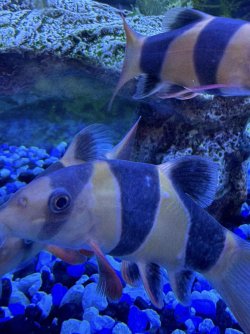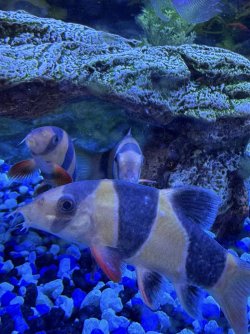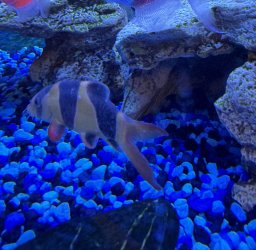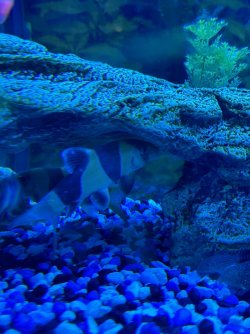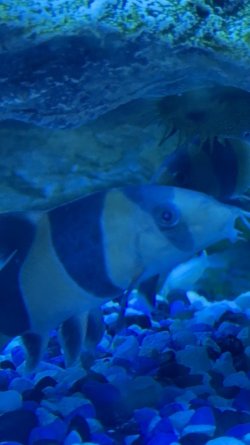Harleygirl74
New Member
*Pic attach*Please, I’d like to have help for my clown loach. I’ve had them for at least three years. My water perimeters are perfect. My tank has been up for at least five years hopefully somebody could help me, hope it’s not too late. I know it’s not ick because I dealt with that when I first got them all. This is kind of new to me. A few white lumps that are sticking out, some on fins too but the black seems grayish (but can be stress as i turned on the light to get a better view) and he’s breathing fast not eating. This morning saw a white dot on eye and flashing on rocks. I would like to treat it if possible with the right meds ect.... Sorry for the quality of the pics, fish are hard to take. Thank you

